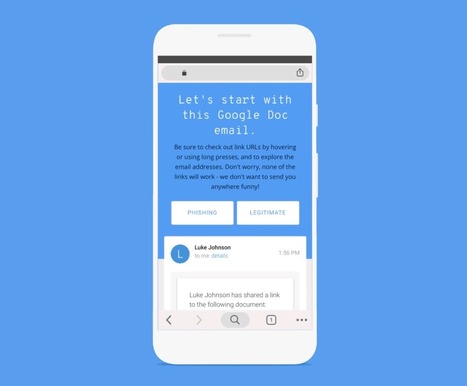
|
Rescooped by Dennis Swender from iGeneration - 21st Century Education (Pedagogy & Digital Innovation) |
Valentina García's curator insight,
February 4, 2019 12:10 PM
This article provides insight about what scams have become in the last era of digital communication and how inevitable it is to receive or find scam on the web, phishing and spamming scams are now part of life in this digital age. But through more engaging education, more authentic practice, and more creative protection practices, schools have a much better chance of mitigating the impact.
Along with the information on how scam has become a daily life issue, it provides us with tips and options to be educated on how to avoid being a victim of spamming, within the options we have to send periodic email reminders. This can reduce the number of users who fall victim to email-based threats. Secondly, to avoid detection, an infected email account usually will not initiate the release of thousands of spam emails until the weekend or late at night. Thirdly, back up data regularly. And finally, always be aware of the sender of the email. And it is very important to also take some prevention such as Familiarize yourself with anti-spoofing authentication methods, try to block the ever-changing names and email addresses of phishers, encourage the use of alternate forms of communication, and Proactively monitor blacklists and review your sender.
Personally, I consider that this article is very informative and useful to be able to stop or reduce the reduce the risk of cyber attacks, as technology has increased its development over the past decade, we also need to be very aware of the risks that come with it and how we can be at the top of the details to avoid being victims of attacks or issues that come to affect our daily life.
Sign up to comment



 Your new post is loading...
Your new post is loading...












